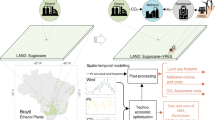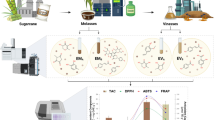Abstract
Energy security and climate change imperatives require large-scale substitution of petroleum-based fuels as well as improved vehicle efficiency4. Biofuels have become one of the fastest growing markets in the world - at 15% growth a year. In fact, until recently, Pakistan was the second largest exporter of sugarcane ethanol to the European Union - a preferential status we have since lost because of WTO obligations and dumping complaints. Several distilleries have planned to close down in light of this fact. Instead of curbing production of fuel ethanol, however, we should redirect it to the domestic market. Pakistan produces around 2 million tons molasses annually and over 90% is exported earning only $47 million. This quantity of molasses will produce over 500 million liters of ethanol to earn $144 million by export or save $63.5 million by blending with fuel. Blending of ethanol will reduce the transport sector GHG emissions by 3.6 million metric tons.
Similar content being viewed by others
Article PDF
Author information
Authors and Affiliations
Corresponding author
Rights and permissions
About this article
Cite this article
Rashid, T., Altaf, Z. Potential and environmental concerns of ethanol production from sugarcane molasses in Pakistan. Nat Prec (2008). https://doi.org/10.1038/npre.2008.1499.1
Received:
Accepted:
Published:
DOI: https://doi.org/10.1038/npre.2008.1499.1



